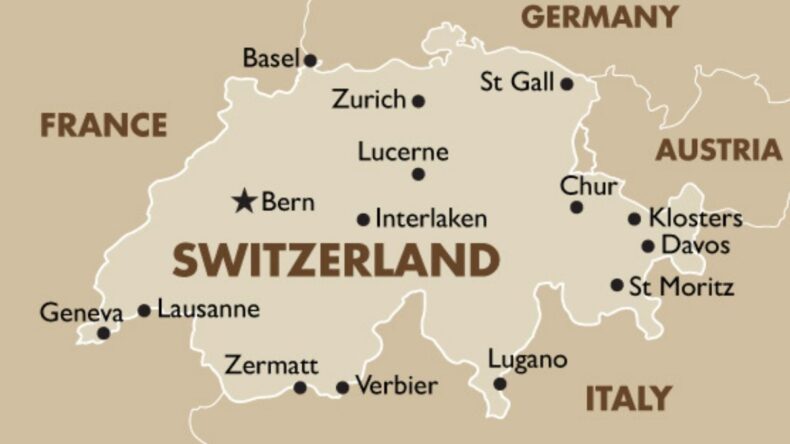Within 2021, Switzerland will have a bunch to acknowledge, even if the country survives to remain somewhat unharmed from the coronavirus catastrophe.
From the apparent downfall of the treaty with the European Union and a violent domestic controversy on the ban of burkha to the fortune with the Geneva-based WTO (world trade organization) and WHO, there are turbulent waters in front.
Keeping the Face Covered
This 2020 finished with an epic war at the voting crate while the truthful business enterprise was dismissed in a very rigid contest, and the friction flickered to get set into the new year.
The following year’s first crucial vote, on a federal rejection on wearing a burkha in a public area, vows an equally volatile, or maybe even more emotional crusade.
This recommendation, if it got approval on March 7, 2021, was put forward by associates of powerful right-wing parties in 2017 and will give rise to headlines in the worldwide press.
The Egerkingen Committee, being the motorist for the anti-minaret ambition, put up by 57.5% of the Swiss voters, can amount to something on the consent that goes beyond conventional prudent and patriotic halves.
Because of the commission’s powerful assertions, it is tough for the administration, and human liberties associations, which consider this endeavour useless and counterproductive for women, to make their prosecution heard.
It is especially authentic since the burkha ban has earned favour in recent years. Ban on Burkha has already been initiated in Europe, France, Belgium, Denmark, and Austria, as they have the Swiss cantons of Ticino and St Gallen.
Ironically, an initiative to ban full-face coverings was imposed on the citizens when everyone was wearing masks in public places since last summer.
It lingers to be seen whether the Covid-19 epidemic will have any leverage on the poll results.
Germicides – A Big Deal for the Community
While such ballots usually have a limited chance of achieving, two other recommendations expecting a constitutional amendment are coming at a favourable juncture.
2021 can become the year of initiatives taken by the public! Both are about artificial pesticides, an issue closer to the people in Switzerland and elsewhere on earth.
Being free of artificial pesticides, the effort undertaken by Switzerland strives to outlaw the use of pesticides.
Also, the bringing-in of food containing pesticides, while the healthy drinking water and food drive, aim to reduce straightforward offerings to farmers who use pesticides or herbicides.
Despite the revolutionary essence of these plans, it is unlikely that the relentless movement of agricultural deputies and the agrochemical trades will be enough to neutralize the public aid they have been relishing.
The record demonstrates that the Swiss are very cranky about the food that appears on their dishes. The first country to ban pesticides in 2005 was none other than Switzerland.
An Unending Tale of Allowance Reforms
The year 2021 will be an occupied one for the members of parliament. The reform of the occupational subsidy strategy is the prime thing on their to-do list.
In 2019, after the Swiss people repudiated the first revision of the allowance reform, the ball is back to its original court, that is, of the government.
Where modification of the old-age allowance and disability privilege, recommending a boost at the age of retirement for women from 64 to 65 years.
Migration: Leading To Another Catastrophe?
The New Treaty of the European Union on Migration and Asylum, which is within the EU, will have erratic outcomes for Switzerland.
In December 2020, during their final conference, the member nations could not concede on dubious issues such as the diffusion of asylum pleaders within the EU, being contradicted by Poland and Hungary.
Migration looks like becoming a heated European subject in 2021. Once the Covid-19 pandemic resolves, the summer will see a considerable rise in migration, the fallouts of which are still unknown.
The pandemic has bolstered the notion of nationhood and put back border restraints within the EU.
With the new international alliance policy for 2021 to 2024, the growth coalition will concentrate on four geographic nations rather than six.
Procedures in Africa, the Middle East, Asia, and Eastern Europe will remain while union endeavours in Latin America and the Caribbean will deliberately phase out by 2024.
Switzerland will also satisfy its long-standing belief of being a peace expounder and humanitarian actor as defined in its 2020-2024 foreign policy.
The candidature for a non-permanent seat on the United Nations Security Council will also stride forth in 2021.
Switzerland and The Superpowers
Last but not least, the two global superpowers, the US and China, will be moved by Switzerland.
Under elected President Joe Biden, US foreign policy will transform with the effects of the country’s Middle-East agreement where Switzerland is intertwined.
The national authority will have to clarify the interventions of the Swiss National Bank in the US trade market to avoid monetary approvals.
However, Switzerland regards this interference as essential to curb the extra gratitude of the Swiss franc and an up-gradation in export rates.
The new Chinese policy of the federal parliament expects skill and diplomacy. During the summer, Ignazio Cassis., Foreign Minister, reflected criticism towards China which won him humiliation from the business organizations.
So distantly, Switzerland facilitated its business associations with China and has kept up a non-committal human rights discussion, depicted by a fig leaf by the left.
It will be fascinating only if the Federal Council exhibits more motivation in the recent year.
Recently, it agreed to shorten an ambiguous repatriation treaty with China which got rid of some domestic political coercion.













